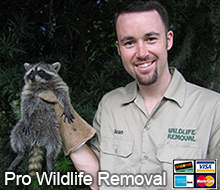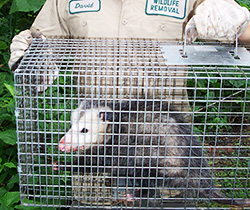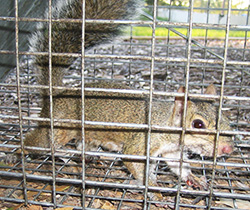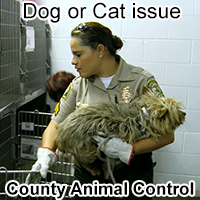- shelton@aaanimalcontrol.com
Call 24/7 for a free quote:
203-900-2225
Shelton Wildlife Control / Connecticut Animal Removal
BearClaw Wildlife - Animal Pest Control in Shelton, CT. Call us: 203-900-2225

- Noises in Your Attic?
- Unwanted Wildlife?
- Bird or Bat Problem?
- Rodent Infestation?
- We Can Solve It!
Please, no calls about DOG or CAT problems. Call animal services: 203-576-7727.
 We are bat and mice specialists with more than 25 years of experience. We service much of Fairfield County, north to New Fairfield, south to Westport, and the towns of Danbury, Bethel, Ridgefield, Redding, Georgetown, Weston, Wilton, and more.
We are bat and mice specialists with more than 25 years of experience. We service much of Fairfield County, north to New Fairfield, south to Westport, and the towns of Danbury, Bethel, Ridgefield, Redding, Georgetown, Weston, Wilton, and more.
 BearClaw Wildlife provides professional wildlife control for both residential & commercial customers in the
city of Shelton in Connecticut. We offer custom animal control solutions for almost any type of wildlife problem, whether
it be the noises of squirrels running through the attic, a colony of bats living in a building, animals digging in your yard, or
the destructive behavior of a raccoon or other critter, we have the experience and the tools to quickly and professionally
solve your problem. For a consultation and price quote, give us a call at 203-900-2225
BearClaw Wildlife provides professional wildlife control for both residential & commercial customers in the
city of Shelton in Connecticut. We offer custom animal control solutions for almost any type of wildlife problem, whether
it be the noises of squirrels running through the attic, a colony of bats living in a building, animals digging in your yard, or
the destructive behavior of a raccoon or other critter, we have the experience and the tools to quickly and professionally
solve your problem. For a consultation and price quote, give us a call at 203-900-2225
Click here to check our prices updated for year 2024. There are many Shelton pest control companies for animals out there, but not all of them are licensed and insured professionals. Make sure that you hire a competent expert for your Shelton exterminator of wildlife. At BearClaw Wildlife, we will be courteous and friendly and take the time to answer your questions. Give our Shelton trappers at BearClaw Wildlife a call, and we will listen to your problem, and make an appointment to perform an inspection. Feel free to email us at shelton@aaanimalcontrol.com
 Resources for free wildlife removal in Shelton
Resources for free wildlife removal in Shelton
If you can't afford our pro wildlife work, you can try these agencies for free wildlife removal:
Fairfield County Animal Services: 203-576-7727
Connecticut Wildlife Commission: 860-424-3000
Shelton Police Department: 203-924-1544
These agencies will only help with certain types of wildlife problems, and they are not always consistent. If you want a high quality of
help done right, call our company.
 Connecticut is full of wildlife, including snakes, squirrels, raccoons, skunks, opossums, and more. Wildlife removal is a complex field. I
recommend professional Shelton wildlife control services if you want to solve a critter problem legally and correctly. For example, we specialize in animals in the attic, which have broken into the house
and almost always have a nest of baby animals. It is necessary to perform correct
preventative repairs to keep pest animals a out of your house for good. We perform full building inspection, do the
the repairs and we also offer attic decontamination if necessary. Rats and mice love to live in attics, and can chew wires or leave droppings. Some Shelton animals
frequently enter homes, and correct removal is not a simple task.
Connecticut is full of wildlife, including snakes, squirrels, raccoons, skunks, opossums, and more. Wildlife removal is a complex field. I
recommend professional Shelton wildlife control services if you want to solve a critter problem legally and correctly. For example, we specialize in animals in the attic, which have broken into the house
and almost always have a nest of baby animals. It is necessary to perform correct
preventative repairs to keep pest animals a out of your house for good. We perform full building inspection, do the
the repairs and we also offer attic decontamination if necessary. Rats and mice love to live in attics, and can chew wires or leave droppings. Some Shelton animals
frequently enter homes, and correct removal is not a simple task.
 DOG or CAT: If you need assistance with a domestic animal, such as a dog or a cat, you need to call your local
Fairfield County Animal Control
for assistance. They can help you out with issues such as stray dogs, stray cats, vaccinations, licenses,
pet adoption, lost pets, and more. If you have a wildlife problem, you can try calling the Fairfield County animal control, and see what they have to
say, but they will certainly not help you with a complex wildlife problem such as critters in your attic. They are a free government agency that
helps with dog and cat issues only.
DOG or CAT: If you need assistance with a domestic animal, such as a dog or a cat, you need to call your local
Fairfield County Animal Control
for assistance. They can help you out with issues such as stray dogs, stray cats, vaccinations, licenses,
pet adoption, lost pets, and more. If you have a wildlife problem, you can try calling the Fairfield County animal control, and see what they have to
say, but they will certainly not help you with a complex wildlife problem such as critters in your attic. They are a free government agency that
helps with dog and cat issues only.
Fairfield County Animal Services: 203-576-7727
Shelton Wildlife Tip:
What do skunks live in? Skunks live in dens, either those they have created or those they have stolen from another creature. They aren't combative animals, but if they find an empty gopher hole, they aren't going to pass up the opportunity. Not much bothers a skunk in the wild. Most animals know about the skunk's dangerous spray, a liquid that can temporarily blind them and burn the skin. Birds are the most common predators of a skunk since the bird's sense of smell is fairly non-existent. You won't find skunks in trees, but they will live under human buildings where openings along the ground present themselves. You'll usually be able to tell when a skunk is living in your yard just by the smell that lingers. You'll also start to see ripped up areas in your yard where the skunk has been digging for grubs and insects. When this starts to happen, you should consider your options. A skunk won't necessarily bother you, but it might tangle with your house pets. It also might have rabies, and rabies is always fatal for you and any other mammal it infects. If the skunk is a concern, you can trap it yourself or hire someone to come trap the animal and then relocate it.
Shelton, CT Animal Control News Clip:
Connecticut Deer are found in the family Cervidae and are ruminant mammals. Some of the species in this family include the mule deer, roe deer, moose, reindeer, red deer and white tailed deer among others. The only thing that differentiates deer from antelopes is that most of the deer species grow and shed their antlers every year.
Habitat - Deer live in various places, including the tropical forest and tundra. Deer are, therefore, known to live both in the forests/thickets and savanna. They can live both in places that provide cover and those that are open. It is for this reason that deer are often found in places that have both forests and savanna. According to research, clearing some thick forests might be ideal for Deer survival, since it allows for the growth of some grasses and herbs that they like to eat. However, care should be taken that enough forest cover is still provided, in order to enable the deer population to thrive. Deer that are found in North America include the caribou and the moose, with the former occupying the boreal forests and the latter inhabiting the taiga. Some of the deer in this area have been observed to behave like goats. Most of the Deer in North America are in the Canadian Rocky Mountains and the Columbia Mountain. In these regions, all five of the deer species in North America can be found. The species are Mule deer, White tailed deer, Moose, Elk and Caribou. The region also has a number of national parks, where the deer can be found, for example, Banff national park, Yoho national park, Kootenay national park and Glacier national park among others.
Biology - On average, Connecticut deer weigh between thirty kilograms and three hundred kilograms. The smallest species of deer is the Northern Pudu, which weighs around ten kilograms. On the other hand, the largest species of deer is the moose, which weighs around 431 kilograms. Deer usually have long and powerful legs, which are suitable for the woods. They are also known to be good swimmers and jumpers. They have a four chambered stomach, which helps them with digestion, especially given the fact that they are ruminants and chew cud. Like other ruminants, their teeth are adapted to feed on vegetation. They do have upper incisors, but instead they have a tough pad at their upper jaw front. It should be noted that in some cases, deer have been known to consume meat if it is available. Deer also have a facial gland in the front of their eyes, which contains a pheromone that they use to mark their home range. They often open these glands wide open in case they are excited or angry. Another interesting thing to note about deer is that they have a liver but do not have a gallbladder. As has been noted, they mostly feed on vegetation. Their stomachs are smaller than those of most ruminants, yet they have a higher requirement for nutrients. Given the fact that their stomachs are small, they choose to feed on things that are easy to digest.
We are Shelton wildlife management experts, and are familiar with all the pest animals, including all species of Connecticut snakes and
bats. We at BearClaw Wildlife are the best among Shelton nuisance wildlife companies and can solve all animal damage issues. Our wildlife operators are skilled at bird control and
bat removal, and would be happy to serve your Shelton bat control or pigeon and bird control needs with a professional solution. Opossums, skunks, moles, and other animals
that can damage your lawn - we are the exterminators who can capture and remove them. Our specialty is removal of animals in homes such as raccoons in the attic or squirrels in the attic.
Our professional pest management of wildlife and animals can solve all of your Shelton
critter capture and control needs. Give us a call at 203-900-2225 for a price quote and more information.
If you have any questions about a wildlife problem in Shelton, or wildlife removal in Fairfield County, please give BearClaw Wildlife a call at 203-900-2225, and we will listen to your problem, give you a price quote, and
schedule an appointment, usually same day or next day, to solve the problem.


















